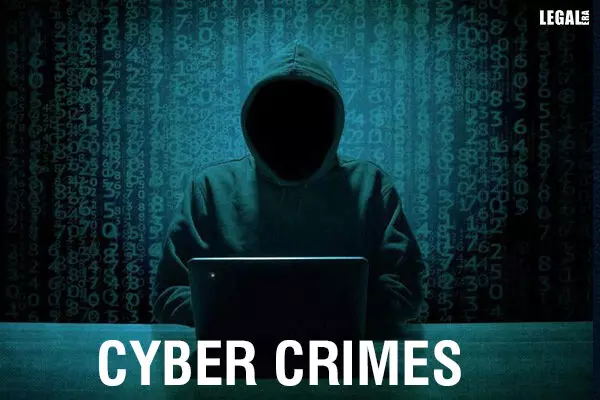- Home
- News
- Articles+
- Aerospace
- Artificial Intelligence
- Agriculture
- Alternate Dispute Resolution
- Arbitration & Mediation
- Banking and Finance
- Bankruptcy
- Book Review
- Bribery & Corruption
- Commercial Litigation
- Competition Law
- Conference Reports
- Consumer Products
- Contract
- Corporate Governance
- Corporate Law
- Covid-19
- Cryptocurrency
- Cybersecurity
- Data Protection
- Defence
- Digital Economy
- E-commerce
- Employment Law
- Energy and Natural Resources
- Entertainment and Sports Law
- Environmental Law
- Environmental, Social, and Governance
- Foreign Direct Investment
- Food and Beverage
- Gaming
- Health Care
- IBC Diaries
- In Focus
- Inclusion & Diversity
- Insurance Law
- Intellectual Property
- International Law
- IP & Tech Era
- Know the Law
- Labour Laws
- Law & Policy and Regulation
- Litigation
- Litigation Funding
- Manufacturing
- Mergers & Acquisitions
- NFTs
- Privacy
- Private Equity
- Project Finance
- Real Estate
- Risk and Compliance
- Student Corner
- Take On Board
- Tax
- Technology Media and Telecom
- Tributes
- Viewpoint
- Zoom In
- Law Firms
- In-House
- Rankings
- E-Magazine
- Legal Era TV
- Events
- Middle East
- Africa
- News
- Articles
- Aerospace
- Artificial Intelligence
- Agriculture
- Alternate Dispute Resolution
- Arbitration & Mediation
- Banking and Finance
- Bankruptcy
- Book Review
- Bribery & Corruption
- Commercial Litigation
- Competition Law
- Conference Reports
- Consumer Products
- Contract
- Corporate Governance
- Corporate Law
- Covid-19
- Cryptocurrency
- Cybersecurity
- Data Protection
- Defence
- Digital Economy
- E-commerce
- Employment Law
- Energy and Natural Resources
- Entertainment and Sports Law
- Environmental Law
- Environmental, Social, and Governance
- Foreign Direct Investment
- Food and Beverage
- Gaming
- Health Care
- IBC Diaries
- In Focus
- Inclusion & Diversity
- Insurance Law
- Intellectual Property
- International Law
- IP & Tech Era
- Know the Law
- Labour Laws
- Law & Policy and Regulation
- Litigation
- Litigation Funding
- Manufacturing
- Mergers & Acquisitions
- NFTs
- Privacy
- Private Equity
- Project Finance
- Real Estate
- Risk and Compliance
- Student Corner
- Take On Board
- Tax
- Technology Media and Telecom
- Tributes
- Viewpoint
- Zoom In
- Law Firms
- In-House
- Rankings
- E-Magazine
- Legal Era TV
- Events
- Middle East
- Africa
Delhi High Court asks Delhi Police to take stand on PIL alleging IT Act not being invoked in cyber crimes

Delhi High Court asks Delhi Police to take stand on PIL alleging IT Act not being invoked in cyber crimes
A Public Interest Litigation was filed stating that the law enforcement agency was merely using provisions of the Indian Penal Code
The Delhi High Court has sought the stand of the Delhi Police on a petition alleging that provisions of the Information Technology Act were not being invoked in cases of cyber-crime in the national capital.
In the Ananya Kumar vs Union of India & Ors case, a division bench of Chief Justice Satish Chandra Sharma and Justice Subramonium Prasad was hearing the Public Interest Litigation (PIL) filed by Ananya Kumar, a Ph.D. scholar in cyber law.
Though the court did not issue a formal notice, it directed the Delhi Police counsel to obtain instructions on the matter.
Filed through LawPretation Legal, the PIL said that the fact that Delhi Police was not invoking the provisions of the IT Act in various cyber offences was clear from the National Crime Records Bureau (NCRB) data and response to Right To Information (RTI) applications.
The plea stated, "The rate of total cyber-crimes per one lakh of the population was 104.6 in Bengaluru, 50.5 in Lucknow and 32 in Ghaziabad. But in Delhi, it was a measly one.... from the analyses of this data, it is clearly visible that respondent no. 2 (Delhi Police) is not invoking the provision of the IT Act in the cyber-crime-reported offences in Delhi."
It was submitted that the IT Act had an overriding effect and the Supreme Court had directed that wherever any cyber-crime-related offence was reported to the police, the provisions of the IT Act should be invoked first and the IT Act would override every other Act.
Kumar stated that the IT Act also provided appointing an officer to adjudicate whether anyone contravened the Act, the rule, regulation, direction, or order. And an inquiry should be held. But these provisions were not being enforced in Delhi and no information on it was available on the state government's website.
The PIL sought a direction from the Commissioner of Delhi Police to issue a standing order/guideline to be followed by the police to invoke the provision of the IT Act first whenever an FIR was registered for a cyber-crime.
The petitioner also prayed for directions to the Central and Delhi governments to provide separate infrastructure and online visibility for the proper functioning of the adjudicating officer appointed under the IT Act.
Also, the public should be made aware that such an adjudicating officer was appointed. He had the power of the civil court and people could approach him for redressal on contravention of the IT Act.
The matter will be heard on 15 May.



